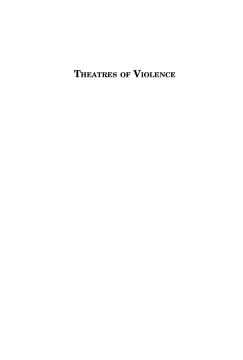
Additional Information
Book Details
Abstract
Massacres and mass killings have always marked if not shaped the history of the world and as such are subjects of increasing interest among historians. The premise underlying this collection is that massacres were an integral, if not accepted part (until quite recently) of warfare, and that they were often fundamental to the colonizing process in the early modern and modern worlds. Making a deliberate distinction between ‘massacre’ and ‘genocide’, the editors call for an entirely separate and new subject under the rubric of ‘Massacre Studies’, dealing with mass killings that are not genocidal in intent. This volume offers a reflection on the nature of mass killings and extreme violence across regions and across centuries, and brings together a wide range of approaches and case studies.
“Making a distinction between ‘massacre’ and ‘genocide,’ the editors strive to launch a new field of ‘massacre studies,’ focusing on mass killings that are not genocidal in intent. The book should be added to any library collecting in the field of mass violence studies.” · Choice
“Students of world history need to understand that history does not exist in a concrete and established form but rather continues to be shaped by—and to shape, in turn—present prejudices and policies. Theatres of Violence, by tackling a selection of emotionally charged and highly contested events, illustrates that dynamic at work throughout history, and so it proves an important contribution to both the study of violence specifically and to world history in general.” · Middle Ground Journal
“…an admirable and varied collection of 20 chapters on the phenomenon of massacre… The density of the volume is such that this review cannot do full justice to the quality of the contributions.” · European History Quarterly
"...{A] milestone on the path toward a more sophisticated analysis of a key feature of human cruelty…[This volume’s] goal is exploration and inspiration of further research in, and discussion of, the history of massacres…[It] does an excellent job in doing exactly this, and I am sure it will serve for a long time as a major reference book in the broader field of mass violence studies." · Thomas Kühne, Strassler Center for Holocaust & Genocide Studies, Clark University
Philip Dwyer is Associate Professor in Modern European History at the University of Newcastle, Australia. He has published widely on the revolutionary and Napoleonic eras. His monograph Napoleon: The Path to Power, 1769-1799 (2008) won the Australian National Biography Award.
Lyndall Ryan is Professorial Fellow at the Centre for the History of Violence, Humanities Research Institute at the University of Newcastle, Australia. Her classic text, The Aboriginal Tasmanians, first published in 1981, opened up the field of colonial frontier violence in Australia. Since then she has published widely on settler massacres on the Australian colonial frontier.
